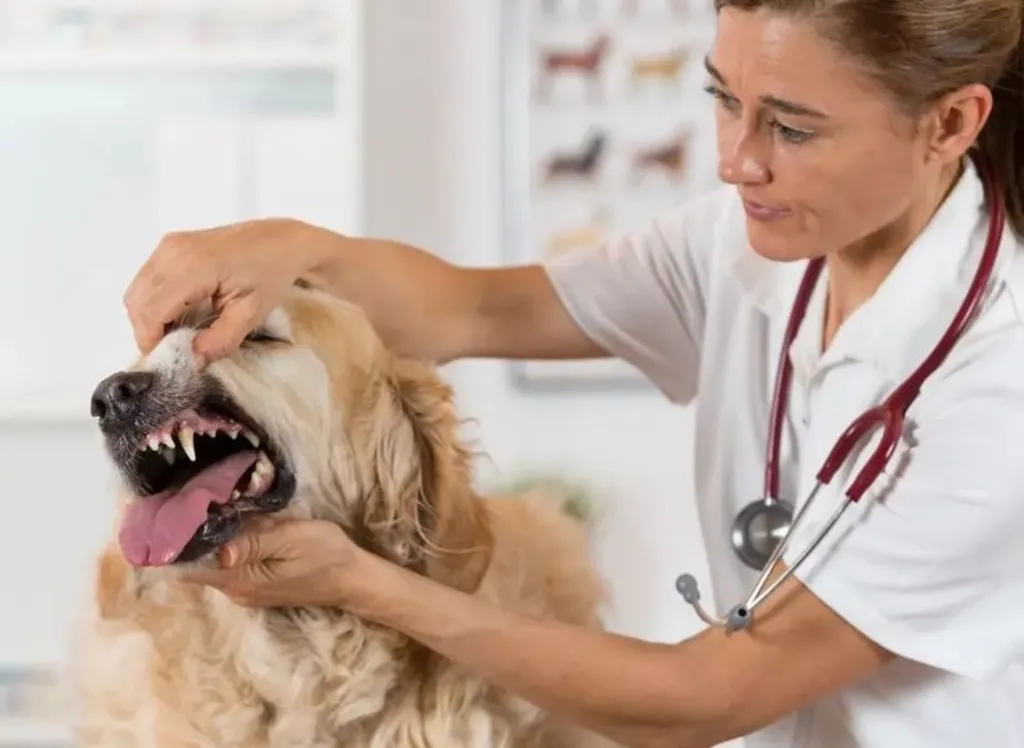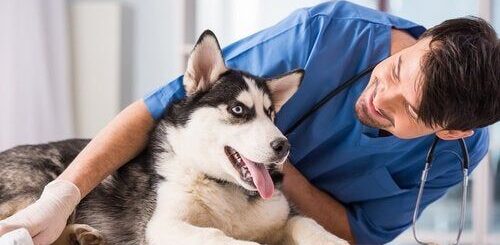Pet and Care: Healthy and Happy Pet Tips

When you bring a pet into your life, you commit to their well-being. Pets and care work hand-in-hand, ensuring your furry companion thrives in a healthy, safe environment. The care you give your pet will make a big difference in how happy and healthy they are, regardless of whether you are a seasoned pet owner or new to pets. It’s not just about providing food and shelter; it’s about fostering an environment that caters to their emotional, physical, and social needs.
This guide provides actionable advice on everything from nutrition and exercise to grooming and medical care. By seeking the right information, you can make sure that your pet remains healthy, happy, and well-cared for.
The Basics of Pet And Care: Understanding Your Pet’s Needs
The health of your pet depends on balancing physical, emotional, and mental stimulation. Each pet—whether a dog, cat, rabbit, or other animal—has unique needs that must be met to flourish. Here’s a breakdown of the essentials.
Key pet care components:
-
Nutrition: Providing a balanced diet tailored to your pet’s breed, age, and health requirements.
-
Exercise. Maintaining your pet’s health and stimulating their minds requires regular activity.
-
Hygiene: Grooming and cleanliness to ensure comfort and prevent health issues.
-
Affection and Attention: Emotional support through bonding and companionship.
By addressing each of these areas, you’re ensuring your pet’s well-being and happiness.

Nutrition: The Foundation of Good Health
Your pets’ food directly impacts their health, energy levels, and quality of life. It can be a challenge to determine what pet food is right for your pet, but knowing their nutritional needs will help you make an informed decision.
For dogs:
-
Age and Size Matter: Puppies, adult dogs, and seniors have different dietary requirements. Additionally, breeds have different caloric needs based on their size.
-
Breed-Specific Needs: Some breeds are prone to health issues such as obesity or hip dysplasia. It’s imperative to choose a diet that addresses these concerns.
-
High-Quality Ingredients: Always choose food that lists a high-quality protein source (like chicken, beef, or lamb) as the primary ingredient.
For cats:
-
Protein-Rich Diet: Cats are obligate carnivores, requiring a diet rich in high-quality animal proteins.
-
Wet vs. Dry Food: Wet food provides moisture, especially for cats, since they’re not always great at drinking water. A mix of wet and dry food can help balance nutrition.
-
Health-Specific Diets: If your cat has a health issue (like kidney disease or obesity), you may need to choose specialized food recommended by your vet.
General Nutrition Tips:
-
Provide fresh water alongside meals at all times.
-
Avoid feeding your pets human food, as some ingredients (like chocolate, onions, and grapes) can be toxic.
-
Always consult a vet before switching your pet’s food or introducing new treats.
Grooming: Keeping Your Pet Clean and Comfortable
Grooming plays a major role in your pet’s comfort and health. It extends beyond just making them look good—it helps with skin health, parasite control, and even bonding time.
For dogs:
-
Brushing: Regular brushing is crucial for most dogs, especially for those with longer hair. Brushing reduces shedding, prevents matting, and checks for skin abnormalities or parasites.
-
Bathing: Dogs should be bathed every 3 to 4 weeks, depending on their breed and activity level. Use pet-safe shampoos to prevent irritation.
-
Nail Trimming: Trimming your dog’s nails prevents pain, discomfort, and injury. This is especially relevant for active dogs walking or running on hard surfaces.
For cats:
-
Brushing: Cats, particularly long-haired breeds, need regular brushing to prevent hairballs and matting.
-
Litter Box Hygiene: Keeping your cat’s litter box clean is essential for their health. Cats can be very particular about cleanliness; a dirty box can lead to urinary tract infections and stress.
-
Ear Cleaning: Check your cat’s ears regularly for dirt, wax buildup, or signs of infection.
Dental care:
Dogs and cats need regular dental care. Plague buildup can lead to sour breath, gum disease, and other health problems. You can prevent these issues by regularly brushing your pet’s teeth and providing dental chews.

Exercise and Play: Essential for Physical and Mental Health
Pets require physical activity to stay fit and mentally stimulated. Exercise prevents obesity, boosts energy levels, and reduces stress or anxiety. Regular playtime isn’t just about burning off energy for your pets-it also strengthens your bond and keeps them emotionally healthy.
For dogs:
-
Daily walks: Dogs need regular walks for physical exercise and mental stimulation. Depending on their size and energy levels, some dogs require more walks than others.
-
Interactive play: Activities like fetch, tug-of-war, or agility training keep your dog engaged and active.
-
Dog Parks: If your dog enjoys socializing, dog parks are an excellent way to exercise and interact with other dogs.
For the cats:
-
Interactive Play: Use toys like feather wands or laser pointers to keep your cat engaged and active. Cats enjoy playing; regular play prevents boredom and destructive behavior.
-
Climbing and Exploration: Cats love climbing and exploring. Consider adding a cat tree or shelving to allow them to play and exercise indoors.
-
Environmental enrichment: Change your cat’s toys and environment to stimulate them mentally.
Regular Vet Visits: Preventive Health Care
Routine veterinary visits are one of the most important steps you can take to ensure your pet remains healthy and happy throughout their life. Regular check-ups allow your vet to monitor your pet’s overall health, catch potential problems early, and update your furry friend on necessary vaccinations and preventative treatments. Preventive care helps avoid costly medical treatments later on and ensures that your pet lives a longer, healthier life.
Let’s examine the key aspects of regular vet visits contributing to your pet’s overall well-being.
Annual Checkup: A Thorough Health Assessment
An annual vet visit is a comprehensive health assessment that allows your veterinarian to check your pet’s overall health. These checkups allow your vet to:
- Monitor Weight and Body Condition: Your vet will check your pet’s weight and body condition to ensure they maintain a healthy size and shape. This is crucial for avoiding obesity, which can lead to other serious health conditions like diabetes, joint issues, and heart disease.
- Assess Behavior: Behavioral changes often signal underlying health problems, such as pain, anxiety, or cognitive decline. Your vet will ask about any changes in behavior to catch potential issues early.
- Physical Examination: During an annual checkup, the vet will perform a thorough physical examination to detect abnormalities in your pet’s skin, coat, eyes, ears, and heart or lungs.
- Vaccination Review: The vet will review your pet’s vaccination history and update any necessary shots to ensure protection against common diseases.
By having a comprehensive annual checkup, you can stay ahead of any potential health concerns and ensure your pet is in good shape for the year ahead.
Vaccinations: Protecting Against Common Diseases
Vaccinations are a critical part of preventive healthcare for your pet. They protect your pet from serious and often life-threatening diseases. Different vaccinations are required based on your pet’s age, lifestyle, and the risks they are exposed to. Some common vaccinations for dogs and cats include:
- For Dogs:
- Rabies: A deadly viral disease that affects both pets and humans.
- Distemper: A contagious virus that affects the respiratory, gastrointestinal, and nervous systems.
- Parvovirus: A highly contagious virus that affects the intestines and can be fatal, especially in puppies.
- Bordetella (Kennel Cough): A highly contagious respiratory infection that can spread easily in dog parks or boarding facilities.
- For Cats:
- Rabies: Similar to dogs, rabies is a fatal viral disease that can be transmitted to humans.
- Feline Leukemia (FeLV): A virus that weakens the immune system and can lead to cancer.
- Feline Calicivirus and Herpesvirus are viruses that cause respiratory infections and other health complications.
Ensuring that your pet’s vaccinations are up to date is essential in preventing disease spread and protecting your pet from potentially fatal infections. Always consult your veterinarian to ensure your pet receives the appropriate vaccinations based on age and lifestyle.
Parasite Prevention: Protecting Your Pet from Fleas, Ticks, and Worms
Parasites are a common threat to your pet’s health and comfort. Fleas, ticks, and worms can cause various health problems, from skin irritation to life-threatening conditions like heartworm disease. Fortunately, regular preventative treatments can help protect your pet from these dangers.
- Fleas and Ticks: These external parasites can cause discomfort and itching and transmit diseases such as Lyme disease and flea-borne infections. Regular flea and tick preventatives—whether topical treatments, oral medications, or collars—are essential for pets that spend time outdoors.
- Worms: Intestinal worms, such as roundworms, hookworms, and tapeworms, can cause digestive issues, weight loss, and malnutrition. Regular deworming treatments help keep your pet’s digestive system healthy and parasite-free.
- Heartworm: Heartworms are transmitted through mosquito bites and can lead to severe heart and lung damage. Heartworm prevention is essential for pets living in areas where mosquitoes are prevalent.
Preventive Treatment Options:
- Topical Treatments: These are applied directly to your pet’s skin and can prevent fleas and ticks for a specified period.
- Oral Medications: These are typically given monthly and protect against fleas, ticks, and heartworms.
- Injections: Some pets may receive an injection for long-term protection against parasites.
Parasite prevention is crucial, especially for pets that frequently spend time outdoors or are exposed to areas where parasites are common. Regular treatments ensure that your pet remains healthy and comfortable.
Health Screening: Aging and Ongoing Health Monitoring
As pets age, they become more susceptible to health issues that may not be immediately visible. Regular health screenings are crucial for catching these problems early, particularly in senior pets. A thorough health screening may include:
- Blood Tests: Blood work can provide valuable insights into your pet’s organ function, hormone levels, and overall health. Blood tests are important for detecting kidney, liver, and thyroid problems, infections, and diabetes.
- Dental Checkups: Dental health is often overlooked but vital for overall well-being. Dental checkups help detect signs of gum disease, tooth decay, or infection, all of which can lead to serious health issues if left untreated.
- X-rays and Imaging: X-rays may be recommended to assess bone health and joint conditions or detect tumours. This is especially important for senior pets or those with breed-specific health concerns like hip dysplasia in large-breed dogs.
- Breed-Specific Health Concerns: Some breeds are more prone to specific health conditions. For example, Bulldogs may have respiratory issues, and Golden Retrievers are prone to hip dysplasia. Your vet will check for these specific concerns during regular screenings.
As your pet grows older, scheduling more frequent vet visits and screenings is important to catch potential issues before they develop into major health problems. Early detection can greatly improve the quality of life for your senior pet and may even extend their lifespan.

Emotional Well-being: Providing Love and Attention
Pets, especially dogs and cats, thrive on companionship and affection. They need food, shelter, exercise, and emotional support to remain happy and healthy.
For dogs:
-
Socialization: Dogs are pack animals and need social interaction with humans and other dogs. Regular exposure to various people, places, and experiences builds confidence.
-
Bonding Time: Spend quality time with your dog regularly, whether it’s cuddling, playing, or sitting together. This helps them feel secure and loved.
-
Training: Mental stimulation through training keeps your dog sharp and strengthens your bond.
For cats:
-
Independence: While cats are more independent than dogs, they still need attention and affection from their owners. Playtime, petting, and talking to them regularly can keep them emotionally balanced.
-
Comfortable Spaces: Create safe, quiet areas where your cat can retreat when they need privacy or rest.
Stress management:
Just like humans, pets can experience stress and anxiety. Common triggers include loud noises, separation from their owners, or environmental changes. Understanding and addressing these triggers is crucial for your pet’s mental well-being.
Conclusion:
Pet care involves more than feeding and sheltering your animal. A well-cared-for pet is a happy pet, and by meeting their needs for nutrition, exercise, grooming, health, and emotional support, you’ll help them lead a long, fulfilling life.
Remember, pets and their care are ongoing commitments that require time, effort, and love. With the right knowledge and dedication, you can provide your pet with the best care, ensuring they remain happy and healthy for years.
FAQs
1. How often should I take my pet to the vet? At least once a year. Older pets may need more frequent health monitoring visits.
2. What’s the most appropriate diet for my dog? The most appropriate diet depends on your dog’s breed, age, and health. Consult your vet for personalized recommendations.
3. How much exercise does my cat need? While cats are generally less active than dogs, they still require daily playtime and mental stimulation.
4. Can I bathe my dog too often? Bathing your dog once a month is usually sufficient. Over-bathing strips natural oils from their skin.

















Recent Comments